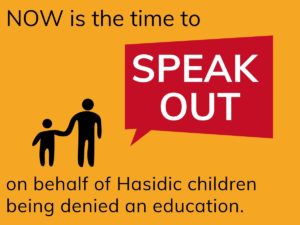The Jersey City Board of Education held a marathon meeting yesterday trying to balance the burden on taxpayers—the proposed 2022-2023 budget will add $2,400 a year, or $200 a month to the average property tax bill–with the needs of students. Currently Interim Superintendent Norma Fernandez and Business Administrator Regina Robinson say they need the full $955.6 million to run the district.
How did they get in this pickle? For many years annual state aid was far more than the school funding formula calculates as Jersey City’s Local Fair Share due to a line item in the Governor’s budget called “Adjustment Aid,” which was supposed to wean over-funded districts slowly off the teat. But political machinations stalled the weaning process until the Legislature passed a bill, S-2, which required the state government to pay once-poor-now-not-so-poor districts less than they were accustomed to. (Here’s an Explainer for how all this works.) To wit: For the school year 2016-2017, Jersey City got $418.7 million from the state, more than half of district costs. For 2022-2023, Jersey City will get $184.7 million. That’s why the new budget proposes to raising the tax levy on homeowners from $278 million to $483.5 million.
Superintendent Fernandez: “What are your recommendations of places and things we could cut?Do we have any place to find money, Regina? I don’t think so.”
From the Star-Ledger:
Before the meeting was adjourned, board members could not answer how to cover the shortfall when asked by Trustee Lorenzo Richardson. Fernandez asked the what it suggested should be cut from the budget. In response, board members sat silently for about 20 seconds before Trustee Lekendrick Shaw suggested waiting until Monday to further discuss how it could balance the budget and reduce the pain to taxpayers. ‘I just see us looking at each other like we playing Texas Hold’ em and we are waiting for the next hand,’ Shaw said. “Seems to me this needs a lot of conversation and we need time to process this and digest this.’
There was considerable disagreement among board members. Two members support the proposed budget, Gina Verdibello and Noemi Velazquez . Board President Gerald Lyon suggested selling “air space” above buildings to generate revenue. Board member Younass Barkouch said homeowners have suffered enough from the city’s rapid gentrification (which is why it’s no longer eligible for more state aid): “I am responsible for students, not Jersey City residents, but to support these students, I must support these parents,” Barkouch said.
According to the state’s Taxpayer’s Guide to Education Spending, in 2016-2017 the budgetary cost per pupil in Jersey City was $19,781. This year it was down to $16,656, right in the middle of its peer group (districts with similar demographics). The state average for this year is $17,028. Among Jersey City’s 28,000 students, about half are economically-disadvantaged. Students meet state proficiency targets in reading but not in math. The high school graduation rate is surprisingly low: 77.3%
. In other words, one out of every four students doesn’t get a high school diploma.
A spokeswoman for Mayor Steve Fulop (who is contemplating a gubernatorial run) called the tax hike “unconscionable.”



